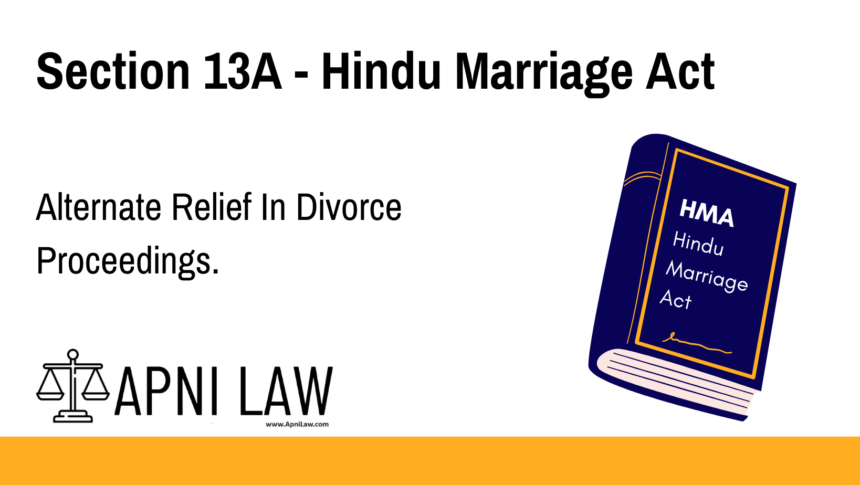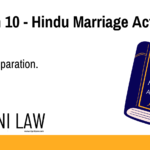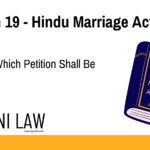Code: Section 13A – Hindu Marriage Act, 1955
Section 13A of the Hindu Marriage Act, 1955 reads:
“Alternate relief in divorce proceedings.—In any proceeding under this Act, on a petition for dissolution of marriage by a decree of divorce, except in so far as the petition is founded on the grounds mentioned in clauses (ii), (vi) and (vii) of sub-section (1) of section 13, the court may, if it considers it just so to do having regard to the circumstances of the case, pass instead a decree for judicial separation.”
🔗 Related Sections:
- Section 13 – Divorce
- Section 10 – Judicial Separation
—
Explanation of Section 13A – Alternate Relief in Divorce
Section 13A empowers the court to grant judicial separation instead of divorce, even if the petitioner originally asked for divorce. This provision is designed to give the court flexibility and avoid a complete dissolution of marriage in cases where reconciliation may still be possible or more appropriate.
This relief cannot be granted when the divorce petition is based on certain serious grounds under Section 13(1):
- Clause (ii) – Cruelty
- Clause (vi) – Incurable and virulent leprosy
- Clause (vii) – Venereal disease in a communicable form
The court must assess the facts and circumstances of each case. If the situation does not warrant a complete break of marital ties, the court may pass a decree for judicial separation instead of divorce.
Judicial separation allows the spouses to live separately without terminating the marriage. It also leaves room for possible reconciliation.
—
Illustration
Let’s consider some practical examples to understand the application of Section 13A:
Example 1: Matrimonial Dispute over Desertion
A wife files for divorce on the ground of desertion. After hearing both sides, the court believes the dispute might be resolvable. Instead of granting divorce, it grants judicial separation under Section 13A, giving the parties space and time.
Example 2: Minor Conflicts
A husband files for divorce due to ongoing quarrels, but there is no cruelty or serious misconduct. The court, considering the long duration of the marriage and the welfare of children, grants judicial separation instead of divorce.
Example 3: Not Applicable Grounds
If the petition is based on cruelty (Section 13(1)(ii)) or communicable disease (Section 13(1)(vii)), the court cannot use Section 13A to pass a decree of judicial separation.
—
Common Questions and Answers on Section 13A
What is the purpose of Section 13A?
It provides courts with the discretion to grant judicial separation instead of divorce when it feels that completely ending the marriage may not be appropriate.
Can the court grant judicial separation even if the parties want divorce?
Yes. The court can exercise its discretion under Section 13A to offer judicial separation in the interest of justice and potential reconciliation.
Does the petitioner need to amend the petition to get judicial separation?
No. Section 13A allows the court to pass a decree for judicial separation even if the petition originally asked for divorce.
What if the case is based on cruelty or disease?
In cases based on clauses (ii), (vi), or (vii) of Section 13(1), Section 13A does not apply. The court cannot use its discretion in such cases.
Can the parties reunite after a decree of judicial separation?
Yes. Judicial separation does not dissolve the marriage. The spouses may choose to resume cohabitation.
—
Conclusion
Section 13A of the Hindu Marriage Act introduces flexibility into divorce proceedings by allowing the court to grant judicial separation instead of outright divorce. This provision helps preserve marriages that may still have a chance of recovery while protecting the legal rights of both parties. However, it excludes serious grounds like cruelty and communicable diseases.
Understanding Section 13A is vital for anyone going through matrimonial disputes. If you are seeking guidance on divorce or judicial separation, consult a qualified family lawyer.
For more expert legal content and family law resources, visit ApniLaw.








